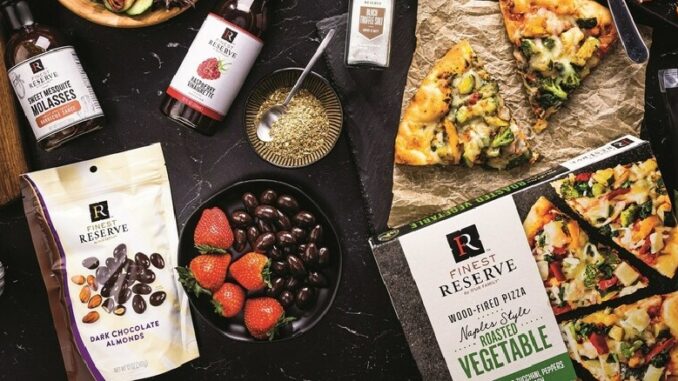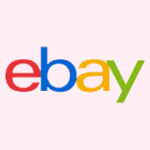- Product
- Solution for
For Your Industry
- Plans & Pricing
- About us
- Resources
For Your Industry
The retail industry has evolved, and private label products (also known as store brands) are no longer the generic, low-cost alternatives they once were. Today, private labels often rival or surpass national brands in terms of quality, innovation, and appeal. This evolution has shifted consumer perceptions, making private labels a significant player in retail strategy. Understanding the generational differences in private label shopping behaviors can help retailers tailor their offerings to meet the needs of diverse consumer groups, capturing more market share in a highly competitive landscape.
As private labels continue to gain popularity, it’s crucial to adapt strategies that cater to the unique preferences of different age groups. Each generation approaches private label shopping differently, influenced by factors such as quality, price, and brand loyalty. In this comprehensive guide, we’ll explore the trends, generational shopping behaviors, and actionable strategies for retailers to effectively win over customers from various age groups.

The surge in private label shopping is undeniable. According to a study by PDG Insights, 98% of U.S. households purchase at least one private label product. This growing trend is fueled by consumers seeking both value and quality, with many private label products now indistinguishable from, or even superior to, national brands.
Private labels are no longer limited to low-cost essentials. Retailers are expanding into premium categories, offering everything from organic canned goods to eco-friendly paper products and artisanal bread. The appeal of these products spans generations, but each age group has unique motivations driving their private label purchases.
Several product categories dominate the private label market, providing key opportunities for retailers to innovate and attract more customers. Here’s a look at the top categories and strategies to stand out:
Canned goods remain a staple in most households, and private label brands have a significant presence in this category. To capture more market share, retailers should offer private label options with unique flavor profiles and organic ingredients. For instance, developing a line of gourmet canned beans in flavors like chipotle lime or fire-roasted garlic can differentiate private label products from national brands. Additionally, offering organic chickpeas or lentils can cater to health-conscious consumers and the growing demand for plant-based protein sources.
Beverages present a significant opportunity for private label innovation, particularly among younger consumers. Millennials and Gen X shoppers are drawn to specialty drinks such as craft beers, sparkling waters, and kombucha. Retailers can create private label lines of hard seltzers in trendy flavors like watermelon mint or passionfruit hibiscus. These offerings not only compete with national brands but also resonate with consumers who prioritize uniqueness and health.
As more consumers shift towards plant-based diets or seek options that cater to dietary restrictions, the demand for dairy alternatives has skyrocketed. Private label plant-based milks like almond milk, oat milk, and lactose-free options can tap into this growing trend. Retailers should consider offering fortified private label almond milk with added calcium and vitamin D to directly compete with national brands, providing a cost-effective yet nutritious option.
Sustainability is becoming a major concern for today’s shoppers, especially Millennials and Gen Z. Private label paper products made from sustainable materials like recycled paper or bamboo can help retailers stand out. Packaging that highlights the environmental benefits of these products can appeal to environmentally conscious consumers.
Artisanal and health-conscious bread options are in high demand. Offering private label bakery lines featuring artisanal breads like sourdough boules, baguettes, or whole-wheat sourdough can cater to shoppers seeking premium quality. Retailers can also partner with local bakeries to create unique recipes for private label products, further emphasizing the artisanal appeal.
Different age groups have varying motivations when it comes to private label shopping. By understanding these preferences, retailers can adjust their marketing strategies to better align with consumer expectations.
Older consumers tend to prioritize value and familiarity when shopping for private labels. They purchase private label products across more categories than younger generations, with an average of 8.4+ product types in their shopping carts. Value is a key driver, and older shoppers are often loyal to established private label brands they trust.
Marketing Strategy: To appeal to this demographic, focus on promoting the affordability and reliability of your private label offerings. Feature price comparisons between private labels and national brands to highlight the cost savings. Additionally, emphasize the consistent quality of your products in promotional materials.
Generation X has increasingly embraced private labels, largely due to the perception of improved quality. In the past, this group may have avoided private labels due to a stigma of lower quality, but as private labels have evolved, so have their preferences.
Marketing Strategy: For Gen X shoppers, quality assurance is crucial. Consider running in-store taste tests or product comparisons between private labels and national brands to demonstrate the quality improvements. Offering in-store samples and discounts can further encourage trial and conversion.
Millennials are more likely to choose a grocery store based on the variety and quality of its private label offerings. This generation is budget-conscious but also prioritizes convenience and health. They are particularly drawn to private label beverages and snacks that fit into their on-the-go lifestyle.
Marketing Strategy: To attract Millennials, create social media campaigns featuring trendy recipes using your private label products. Work with influencers to showcase the convenience and affordability of these items. Invest in eye-catching, sustainable packaging to appeal to their environmental values. Partnering with influencers and using Instagram-worthy packaging can also be effective in reaching this audience.
Although they’re still forming their shopping habits, Gen Z consumers are highly influenced by brand values, sustainability, and convenience. They prefer brands that align with their ethical beliefs, such as those committed to sustainability, transparency, and social justice.
Marketing Strategy: Highlight sustainability initiatives and ethical sourcing in your marketing campaigns. Transparent labeling, certifications (like fair trade or organic), and eco-friendly packaging will resonate with Gen Z consumers. Leverage digital platforms like TikTok and Instagram to engage this younger audience.
The private label market is growing rapidly, but so is competition. Retailers must continually innovate and adapt their strategies to stay relevant and competitive. Here are key areas of focus:
Monitoring competitors and staying updated on industry trends is essential for innovation. For example, if a competitor successfully launches a line of plant-based yogurt alternatives, it’s important to explore developing your own private label options in this growing category.
Private labels should offer more than just cost savings; they should meet specific customer needs. Investing in product development allows you to differentiate your offerings. For instance:
Consumers want to know where their products come from. By clearly labeling ingredients, allergens, and sourcing practices, retailers can build trust. For instance, promoting fair trade certifications on private label coffee or highlighting local ingredients in your products can boost consumer confidence.
Data analytics, loyalty programs, and online ordering are powerful tools for driving private label sales. Retailers can use data to understand customer preferences and develop personalized marketing strategies. Offering private label subscription services or making private label products available for online ordering and delivery can further enhance convenience.
To win over every generation in the private label market, retailers must understand the distinct preferences and shopping habits of different age groups. By offering high-quality, innovative private label products and tailoring marketing strategies to appeal to specific generational needs, retailers can capture more market share and thrive in an increasingly competitive environment.
Continuous innovation, transparency, and leveraging technology will keep private label offerings fresh and appealing, ensuring long-term success in this growing market.
We use cookies to provide you with an optimal experience, for marketing and statistical purposes only with your consent, which you may revoke at any time. Please refer to our Privacy Policy for more information.






Missing an important marketplace?
Send us your request to add it!